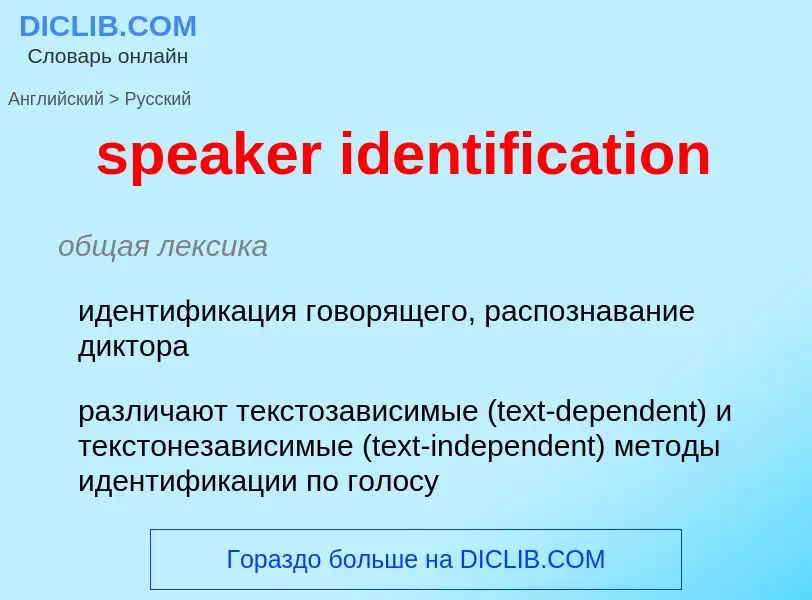Traduzione e analisi delle parole tramite l'intelligenza artificiale ChatGPT
In questa pagina puoi ottenere un'analisi dettagliata di una parola o frase, prodotta utilizzando la migliore tecnologia di intelligenza artificiale fino ad oggi:
- come viene usata la parola
- frequenza di utilizzo
- è usato più spesso nel discorso orale o scritto
- opzioni di traduzione delle parole
- esempi di utilizzo (varie frasi con traduzione)
- etimologia
speaker identification - traduzione in Inglese
общая лексика
идентификация говорящего, распознавание диктора
различают текстозависимые (text-dependent) и текстонезависимые (text-independent) методы идентификации по голосу
синоним
Смотрите также
Смотрите также
Definizione
Wikipedia
Speaker recognition is the identification of a person from characteristics of voices. It is used to answer the question "Who is speaking?" The term voice recognition can refer to speaker recognition or speech recognition. Speaker verification (also called speaker authentication) contrasts with identification, and speaker recognition differs from speaker diarisation (recognizing when the same speaker is speaking).
Recognizing the speaker can simplify the task of translating speech in systems that have been trained on specific voices or it can be used to authenticate or verify the identity of a speaker as part of a security process. Speaker recognition has a history dating back some four decades as of 2019 and uses the acoustic features of speech that have been found to differ between individuals. These acoustic patterns reflect both anatomy and learned behavioral patterns.

